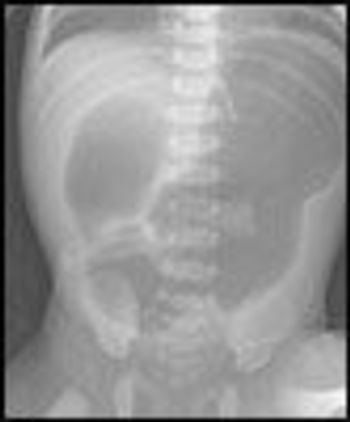
News


Despite a reputation as a "safe"sport, soccer is associated with a variety of acute and overuse injuries. This overview helps you diagnose, manage, and refer these problems, and clarifies how to prevent them.

Your patient in the emergency department today is a 5-day-old girl brought in by her parents because of an episode of what they describe as "shaking." First, they tell you, she had an episode of choking and gagging during a feed, accompanied by noises resembling the hiccups. Shortly afterward, she developed rhythmic twitching of the arms and legs.











Early signs of bilirubin-induced neurologic damage in healthy term and near-term newborns are often vague. A comprehensive approach to management helps prevent rapid progression and irreversible consequence.

Working with pediatric residents and medical students to care for patients provides many opportunities to recognize, and be grateful for, progress. Some patient discussions I recently had highlight improvements in medical care that, in the absence of historical perspective (in other words, if you haven't been around for a long time) would be easy to take for granted.

The irides of a legally blind 19-year-old woman had been absent since birth. When she was 6 weeks old, her parents noted that she was not focusing on objects the way her siblings had. They consulted an ophthalmologist who diagnosed aniridia. The woman is able to read book print close up and can ambulate independently, although she has difficulty at times, such as when stepping off a curb in unfamiliar surroundings.

For 3 days, a 10-year-old girl had redness and vesicles on her right volar wrist. She had not had any pain, fever, or other systemic symptoms.


High-Sugar Foods

A 14-year-old girl presented with concerns about a "deformed" right shoulder. Despite the fact that there was no associated weakness, the defect made her self-conscious. She denied recent trauma to the site and severe physical exertion.

The patient is a female neonate who weighed 2210 g at birth. The mother is an 18-year-old Mexican American (gravida 1, para 0, rapid plasma reagin-nonreactive, rubella-immune, and hepatitis B surface antigen-negative) who has had no regular prenatal care. She was admitted via the emergency department to labor and delivery after spontaneous rupture of fetal membranes at home.

If the infectious agent is penicillin-sensitive and especially if the patient responds well to penicillin VK with each episode, would a longer course of penicillin be a more effective treatment?

With more than 7,000 eateries in the greater Washington, DC, area, it's a pretty good bet that, given the time, even the most finicky gourmand will find something to please his or her palate. However, choosing the right restaurant can be tricky, especially if you're pressed for time.

May 14-17 2005

How seriously should I take a young child's complaint of "fear of the dark"? What are the best ways to help parents deal with this issue?


You've been called down to the emergency department early this morning by the ED attending to see a 5-month-old girl brought in by her parents because of vomiting. The attending does not see signs of dehydration, but reports that the baby "looks funny."

